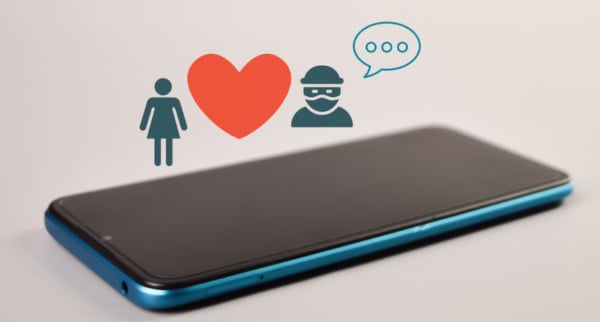
HBO’s post-apocalyptic hit “The Last of Us,” based on the video game of the same name that debuted in 2013, has riveted viewers and critics alike. It also provides an attractive platform for video game scams — which could jeopardize your credit card information — and sheds more light on these scams as a whole.
The HBO series has spurred interest in the video game, whose sales have skyrocketed since the show’s premiere. That, in turn, has given video game scammers a fresh pool of could-be victims.
“Gamers definitely are one of the main targets of cybercriminals, who are creating more and more financial scams,” warns Olga Svistunova, a security expert at Kaspersky, a producer of cybersecurity software. “In financial scams, credit card data is the final and main aim of cybercriminals, who will try to extract this information from the victim by any means.”
Kaspersky recently described two scams that have gained traction due to the frenzy over “The Last of Us.”
‘The Last of Us’ malware scam
One of the scams stems from a website that supposedly is selling the yet-to-be-released “The Last of Us Part II” video game. But any device that downloads the phony game almost certainly will be infected with malware. None of “The Last of Us” video games are available via online downloads.
Malware, short for malicious software, can invade electronic devices such as gaming systems, computers, cellphones, tablets and smart TVs. Once malware burrows into a device, it can steal or destroy data. Half of all online credit card fraud is attributed to spyware, a form of malware.
“Once spyware has sent your personal and financial data to spies, the criminals either sell your information to other criminals or fraudsters impersonate you using stolen information. Sometimes they will attempt to add themselves or an alias that they control as an authorized user to your account so it’s easier for them to use your credit,” says Webroot, which makes cybersecurity software.
‘The Last of Us’ phishing scam
The second “The Last of Us” scam identified by Kaspersky involves a website that offers an activation code for “The Last of Us” game on PlayStation. To download the code, a user is instructed to pick a “gift,” such as a PlayStation 5 or a $100 Roblox gift card.
To get the code and the gift, a user must pay a fee by entering their credentials and credit card data. While the victims are left with nothing, the scammers gain access to credit card data and other information.
This scam employs a tactic called phishing. Phishing happens when an “attacker masquerades as a reputable entity or person” via a website, an email or another form of communication, according to the TechTarget website.
The 411 on video game scams
Of course, video game scams were around well before “The Last of Us” started its run on HBO in 2023. And they’re more common than you might think.
A study run by Lloyd’s Bank found that 20% of United Kingdom game players have been victimized by a gaming-related scam or know someone who has been. Meanwhile, research from the TransUnion credit bureau shows global incidents of gaming-related fraud climbed 32.6% from 2020 to 2021.
“Cybersecurity firms have warned that cybercrime in gaming has increased substantially since the start of the pandemic,” says Ron Kerbs, founder and CEO of Kidas, whose software is designed to protect children when they’re playing online video games.
According to Kaspersky, the top five PC games used as bait in malware attacks from July 2021 through June 2022 were “Minecraft,” “Roblox,” “Need for Speed,” “Grand Theft Auto” and “Call of Duty.”
In some cases, gamers prey on other gamers to steal in-game currency, carry out fraudulent in-game purchases, swipe credit card information attached to a gaming account or take login information, says Kerbs.
Tips for avoiding video game scams
So, now that you’re more educated about the dangers of video game scams, how can you prevent becoming a victim? Here are nine tips.
1. Use different passwords on different sites
Kerbs said that using the same password on numerous websites makes it easier for a scammer to steal your login credentials and other information.
2. Come up with strong passwords
Kerbs suggests mixing uppercase and lowercase letters, numbers and special characters to create hard-to-detect passwords. He adds that you should change passwords frequently.
3. Don’t share personal information
When you’re playing a game, don’t give your personal information to other players, Kerbs advised. That includes your login credentials.
4. Make purchases only on official sites
Don’t buy and download games from third-party websites that aren’t maintained by a game’s creator or a legitimate retailer. These sites very well could be operated by scammers.
➤ SEE MORE:Is it safe to shop online with a credit card?
5. Be suspicious of special offers
If you see a gaming offer that promises to “boost your rank” or “generate in-game currency,” stay away. It’s most likely a scam, says Svistunova.
6. Install cybersecurity software
To guard against online threats, make sure your devices are equipped with up-to-date cybersecurity software, such as antivirus, firewall and virtual private network (VPN) tools.
7. Watch out for add-on deals
As cybersecurity software provider Norton points out, some fraudsters trick gamers into visiting third-party sites where they can buy game add-ons like weapons, avatar outfits and weapons. But to make a purchase, a gamer must enter credit card or banking formation that a crook then can steal. Therefore, you should proceed with caution when purchasing add-ons.
8. Ignore direct requests for your information
Norton advises against responding to emails or direct messages from gaming platforms that are asking for credit card information and other personal data. In all likelihood, a scammer is behind the request.
9. Monitor your kids’ gaming activity
Scammers often target children who play online video games. But why?
For one thing, kids “are more impressionable and receptive to scammers tactics, and they may be more willing to place trust in strangers online,” according to a report by Tulane University.
In addition, a child’s lack of a credit history is “highly exploitable,” the university says.
Since parents pay little attention to credit files for their children, many instances of identity theft go unnoticed for years. Scammers can use children’s personal information for a variety of purposes, such as opening lines of credit, creating fraudulent contracts, and avoiding prosecution.
The university recommends:
- Teaching your kids about the dangers of sharing private information online.
- Restricting your kids’ use of credit and debit cards for game-related purchases.
- Look out for phony gaming apps downloaded by your kids. “Sometimes scammers will create fake look-alike apps to trick users into providing private information,” says Tulane.
Bottom line on credit cards and video game scams
Like with anything, you should always be protective with your credit card information and other personal data. When it comes to video games, protect yourself by following the above tips, and leave your credit card safely tucked away. While you might need it while shopping official sites, there should be no reason to share this information during game play.


